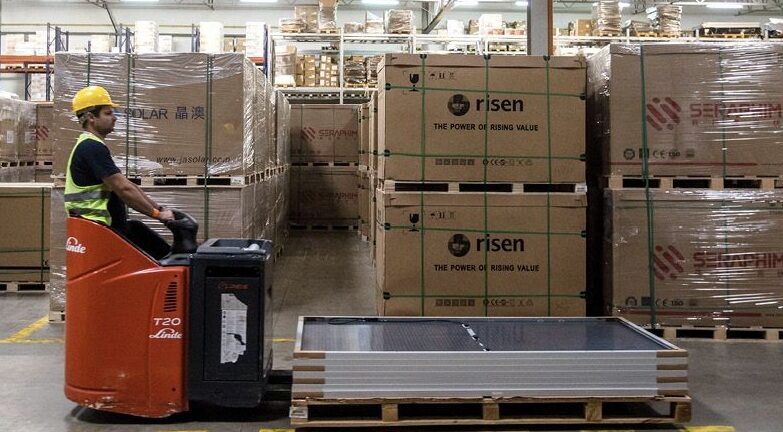The European Bank for Reconstruction and Development (EBRD) is helping Georgia drum up investment in renewables as the nation attempts to draw up an auction scheme for project procurement.
The EBRD has issued a tender for consultants to advise the Georgian Energy Development Fund (GEDF) in four areas: selecting a site for a PV project with a generation capacity of up to 50 MW; designing a competitive bidding process to support renewables; preparing final documents for the nation’s first solar and wind tenders; and providing technical, financial and legal assistance for the planned solar auction.
In a statement announcing EBRD support, no further details of the 50 MW project to be auctioned were released. It would be Georgia’s first large scale PV power plant.
The first stirrings of solar
Georgia has, however, supported rooftop PV systems with a capacity of up to 100 kW through net metering and a 5 MW facility – the EBRD-backed Udabno Solar Power Plant – is under development for the Sagarejo municipality of the Kakheti region. The GEDF issued a tender for “purchasing consulting services” for the project in April 2017.
Around 78% of Georgia’s power comes from 2.4 GW of hydropower generation capacity, with the balance from 900 MW of thermal power plants. The country’s Ministry of Energy estimates the potential for solar capacity expansion at only 500 MW although the number of sunny hours varies between 1,900 and 2,200 per year. By contrast, wind could provide an estimated 1.5 GW of capacity, says the ministry.
The Georgian government introduced primary legislation for renewable energy this year. Secondary legislation will have to be implemented this year, the EBRD said, and the new consultancy tender is part of that effort.
This content is protected by copyright and may not be reused. If you want to cooperate with us and would like to reuse some of our content, please contact: editors@pv-magazine.com.




By submitting this form you agree to pv magazine using your data for the purposes of publishing your comment.
Your personal data will only be disclosed or otherwise transmitted to third parties for the purposes of spam filtering or if this is necessary for technical maintenance of the website. Any other transfer to third parties will not take place unless this is justified on the basis of applicable data protection regulations or if pv magazine is legally obliged to do so.
You may revoke this consent at any time with effect for the future, in which case your personal data will be deleted immediately. Otherwise, your data will be deleted if pv magazine has processed your request or the purpose of data storage is fulfilled.
Further information on data privacy can be found in our Data Protection Policy.